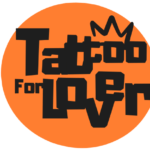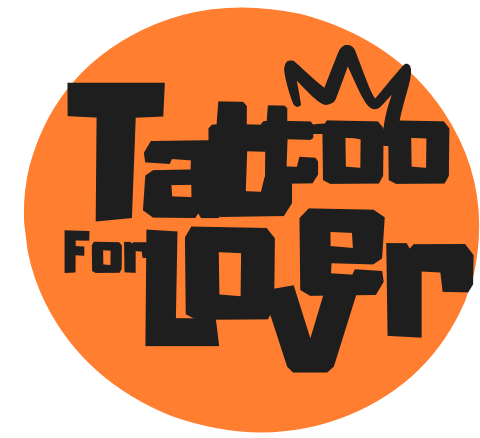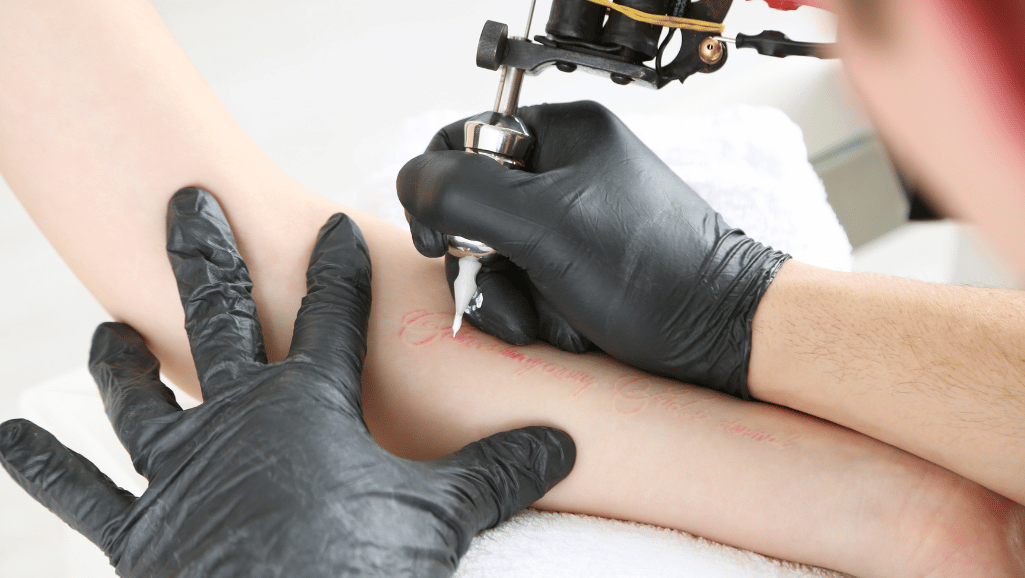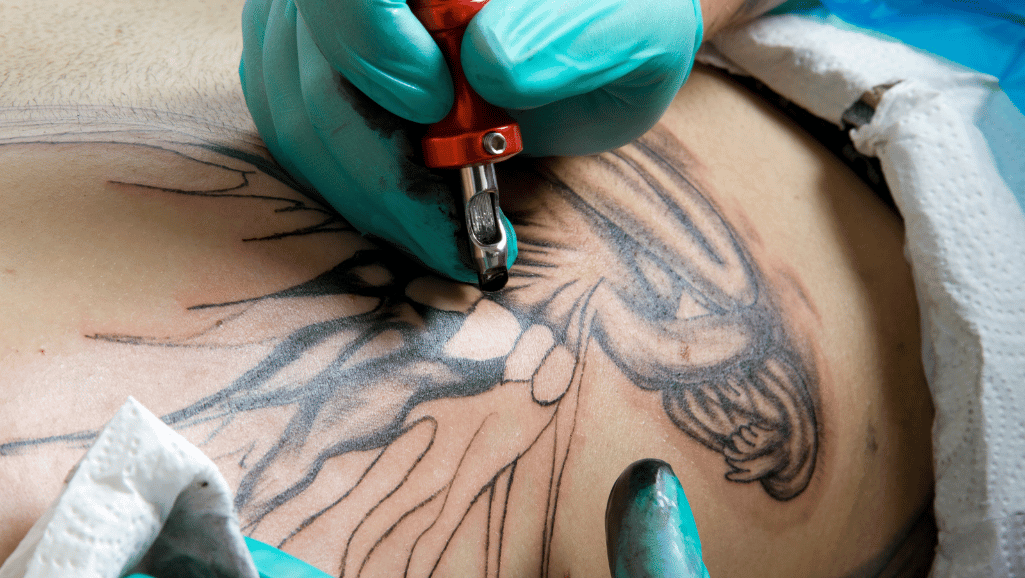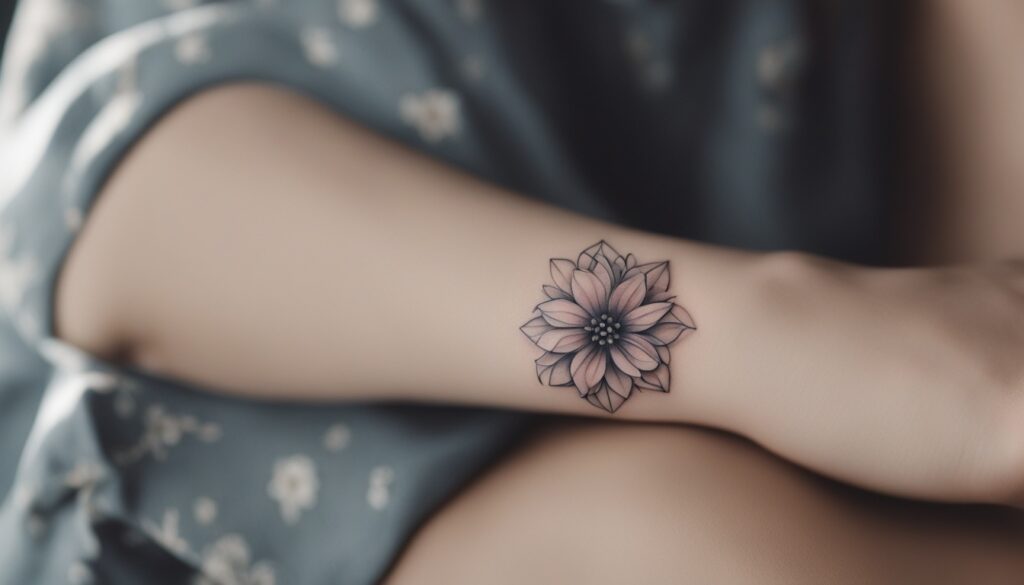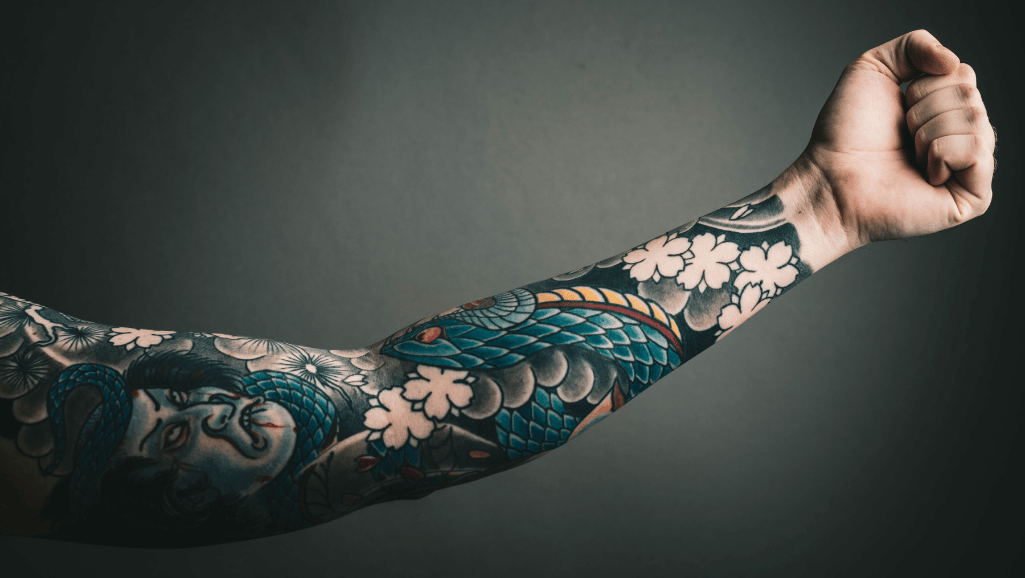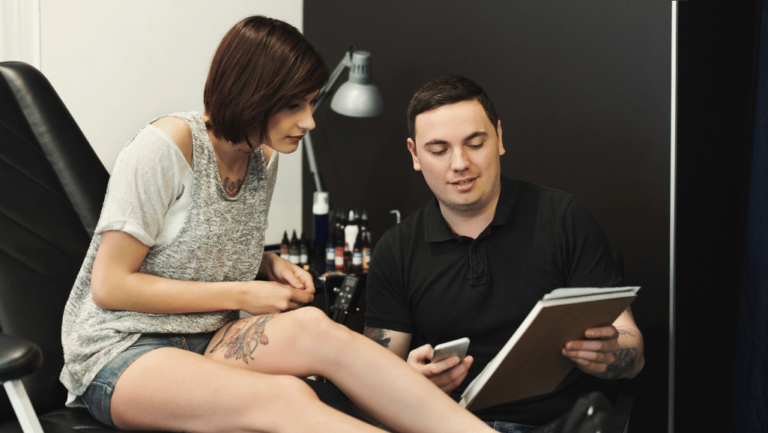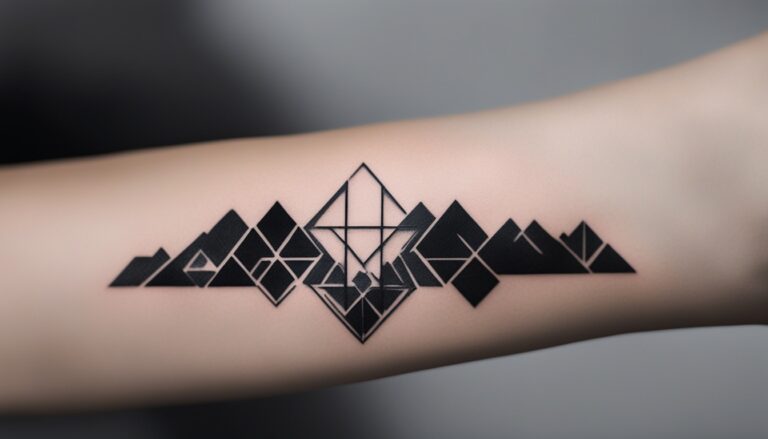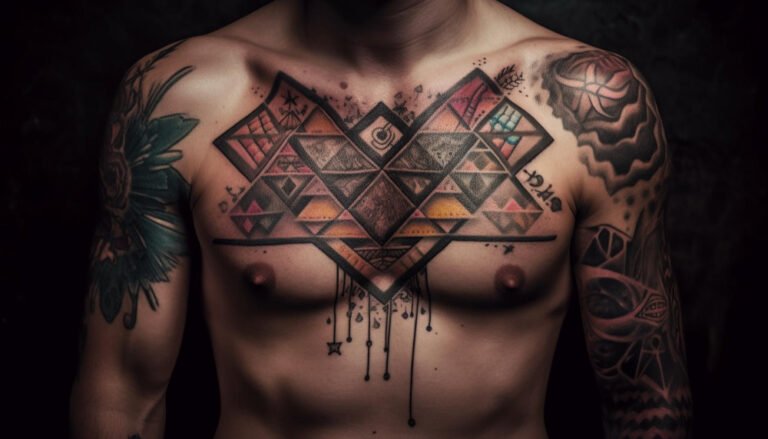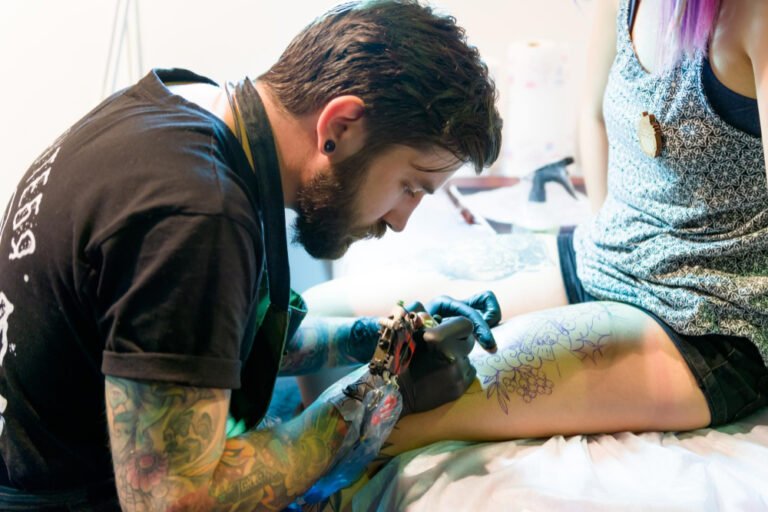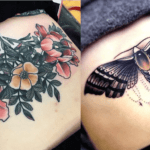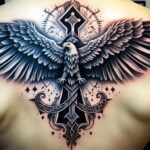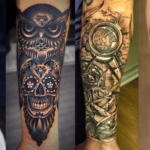Finding the perfect tattoo size is a mix of style, design, and practicality. It’s not just about how it looks now but also how it will look later. The right size fits well with your body, shows your style, and stays clear over time. A good tattoo size guide helps, but talking to an experienced artist is key for a tattoo you’ll love for years.
Choosing the right size depends on many things. It’s not just about the space on your body but also the design’s complexity and how you feel about getting inked. From small 3×3 inch tattoos to big full-back pieces, understanding size is key to planning your tattoo. Knowing about the best size can make your tattoo go from good to amazing, whether it’s your first or another addition.
Key Takeaways
- Talking to a pro is vital for finding the best tattoo size.
- Knowing where to put your tattoo is key to avoiding a cluttered look and keeping things in proportion.
- Small tattoos might be quicker but could fade or lose detail as you age.
Think about if your tattoo size is okay for everyday and work life.
- Think about the cost over time versus what you want right now for your tattoo size.
Understanding Tattoo Size Measurements
When you think about getting a tattoo, knowing the tattoo size measurement is key. It matters whether you want a small design or a big piece. The size affects how it looks, the cost, and where you can put it. Getting the size right means it fits well on your body, looks good, and feels comfortable.
Tattoo Measurement Basics: Using Inches for Precision
Tattoo artists use inches to measure tattoos for accuracy. This method makes sure every part of the tattoo fits right and looks good together. Inches help in planning where the tattoo will go on your body, making it easier to see how it will look.
Interpreting the Tattoo Size Chart: What It Means for You
A tattoo size chart is a big help for clients. It shows how different sizes fit on the body, how long the tattoo will take, and what it might cost. Charts show sizes like a 2-inch tattoo for the wrist or behind the ear. This helps you pick the right size based on what you want to see and how long it will take.
Breaking Down Tattoo Size by Body Placement
Every part of the body is different for tattoos. The size you choose affects how it looks and feels. For example, small tattoos work well on the fingers or ankles. But bigger areas like the back or chest can handle larger, more detailed tattoos.
In the end, using a detailed tattoo size chart and thinking about where you want the tattoo helps. Making smart choices about size and placement leads to a tattoo that looks great and feels good.
Tattoo Proportions and Aesthetics
When thinking about getting a tattoo, it’s key to know the ideal tattoo scale and optimal tattoo dimensions. This ensures your tattoo looks good and lasts. The tattoo proportions should match your body’s curves, making your tattoo look better, not worse.
Choosing the right tattoo design dimensions is important. Think about how it will look as you get older and how your body changes. Big tattoos need more space, like the back or thigh. Smaller tattoos work well on the wrist or ankle.
| Tattoo Size Category | Typical Placement | Detail Level | Estimated Time | Price Range |
|---|---|---|---|---|
| Tiny (up to 2 inches) | Wrist, Ankle | Low | 30 min – 1 hr | $50 – $100 |
| Small (2-4 inches) | Forearm, Shoulder | Medium | 1 – 3 hrs | $100 – $300 |
| Medium (4-6 inches) | Chest, Upper Arm | High | 3 – 5 hrs | $300 – $500 |
| Large (6-10 inches) | Back, Thigh | Very High | 5 – 8 hrs | $500 – $1000 |
| Extra-Large (10+ inches) | Full Back, Full Leg | Extensive | 8+ hrs | $1000+ |
Choosing the ideal tattoo scale is more than just a personal choice. It’s about making sure the tattoo proportions fit your body well. To keep your tattoo looking great, work with a skilled artist. They can suggest the optimal tattoo dimensions for a look that’s both custom and flattering.
The Importance of Tattoo Placement Sizing
Tattoos are becoming more popular, making it key to know about tattoo placement sizing and best tattoo size for placement. It’s not just about how it looks or feels to you. It also matters in how others see it and where you work or go out.
Selecting Optimal Tattoo Dimensions for Specific Areas
Choosing the right tattoo artwork scale is crucial for different body parts. Small areas like the wrist or ankle work best with tiny, detailed tattoos. These tattoos can hold special meanings or be simple art pieces. On the other hand, bigger areas like the back or thigh can show off larger, more detailed tattoos. These let you tell a bigger story or show off your artistic side.
Size Guide: Matching Tattoo Sizes to Body Parts
The size and where you put a tattoo can change how people see and feel about it. Picking the right size can make your tattoo look better and fit your body well. This makes the tattoo more appealing and respectful of your body’s shape.
Here’s a guide on what tattoo size works best for different places:
| Body Part | Recommended Tattoo Size | Common Themes |
|---|---|---|
| Wrist | Small to Medium | Initials, Symbols |
| Forearm | Medium to Large | Portraits, Quotes |
| Back | Large | Landscapes, Spiritual themes |
| Thigh | Medium to Large | Floral Patterns, Animals |
| Ankle | Small | Discreet Tribal Designs, Band styles |
| Neck | Varied | Cultural Symbols, Text |
| Chest | Large | Abstract Art, Faces |
Think about the size and where you put your tattoo to get a piece of art that looks great and means a lot. It should be something you’re proud of, no matter where you go or what you do.
Tattoo Size and Time Required for Inking
When thinking about getting a tattoo, it’s important to know how the size affects the time needed. This helps plan sessions and set clear expectations for both the tattoo artist and the client.
What to Expect: Tattoo Duration Linked to Size
The size of a tattoo greatly influences the time it takes to finish. A small, simple tattoo might only take an hour. But, a detailed full back piece or a sleeve could take ten hours or more. These big tattoos often need several sessions, so it’s key to understand the time needed before starting.
Factors Influencing Tattoo Session Lengths
The design’s complexity affects how long a session lasts. Tattoos with fine details or realistic portraits take more time because they require careful work. The tattoo style also matters. Tattoos with many colors or shades can make a session longer than simpler ones.
Custom designs also need more time for planning and revisions. This process is important to make sure the tattoo looks just right to the client.
- Small Tattoos: Quick and often completed in a single session, ranging from 30 minutes to an hour.
- Large Tattoos: Extensive and require multiple sessions, sometimes lasting several hours each to complete.
How much pain you can handle also plays a role in tattoo time. For big tattoos, breaking sessions into shorter parts can help with comfort, especially during detailed work.
| Tattoo Size | Estimated Time | Sessions Required |
|---|---|---|
| Small (e.g., quarter-sized) | 1 hour | 1 session |
| Medium (e.g., forearm piece) | 2-3 hours | 1-2 sessions |
| Large (e.g., full sleeve) | 5-8 hours | 5-8 sessions |
| Very Large (e.g., full back piece) | 7-10 hours | Multiple sessions |
The Influence of Tattoo Size on Longevity and Clarity
Many people think about the ideal tattoo dimensions and the best tattoo size for longevity before getting a tattoo. It’s important to know how tattoo size affects its look and structure over time. Bigger tattoos usually stay clear and look good longer than smaller ones, which might fade or get blurry as skin ages.
Experts say that bigger tattoos have thicker lines and details. These details are less likely to change with skin movement or aging. This means they keep looking the same, making best tattoo size for longevity key. Small tattoos, though nice for being discreet, might not be good for detailed designs because they can change shape over time.
| Feature | Small Tattoos | Large Tattoos |
|---|---|---|
| Detail Preservation | May blur or distort | Better clarity over time |
| Visual Impact | Subtle | Stronger, more visible |
| Advised for Complex Designs | Not recommended | Yes, accommodates complexity |
The clarity in tattoos also depends on where they’re placed on the body. Tattoos on moving parts like fingers or elbows don’t stay clear as well as those on the back or thigh. It’s smart to talk to a pro about where to put your tattoo based on your design and lifestyle.
When thinking about getting a tattoo, look beyond how it looks now. Think about the long-term clarity in tattoos and the best tattoo size for longevity. This way, your tattoo will stay a strong symbol of who you are for years to come.
Tattoo Size: Small vs Large Tattoo Considerations
Choosing between a small or large tattoo involves more than just personal taste. Both small and large tattoos have their own pros and cons. These factors can greatly affect how you feel about your tattoo over time.
The Charm of Small Tattoo Sizes and Their Impact
Small tattoos are loved for their subtle beauty. They’re perfect for hidden spots like behind the ear or on the wrist. But, tattoos as small as 1×1 or 2×2 inches might have issues later on.
They might lose detail or blur as the skin ages. Also, on thicker skin areas like fingers or palms, the ink can fade easily. This means you might need touch-ups often to keep it looking sharp.
The Commanding Presence of Large Tattoo Sizes
Large tattoos, on the other hand, make a big statement. They start at about 5×5 inches and let artists create detailed designs. These tattoos are great for full-back pieces or sleeves that need a lot of artistry.
They also tend to keep their details longer and last longer. Getting a large tattoo means it’s a big commitment. It’s both an artistic and financial choice.
Deciding between a small or large tattoo depends on what you want to see and where you want it. Whether you choose a small tattoo for a simple look or a large one for a bold statement, think about these points. This way, you’ll make a tattoo choice you’ll be happy with for years.
Pain Tolerance and Tattoo Sizing
When thinking about tattoo sizes, remember to consider pain tolerance and tattoo size. Bigger tattoos take longer to finish, which can affect how comfortable you feel during the process. It’s important to talk about how to handle pain with your tattoo artist for a comfortable tattoo sizing experience.
Finding the right mix between your tattoo dream and your pain threshold is key. Think about these points when planning your tattoo:
- Choose Areas with Lower Pain Levels: The upper arm and forearm are usually less painful, scoring between 2 and 4 on the pain scale.
- Implement Pain Management Techniques: Staying hydrated, eating before your session, and using numbing creams or breaking up the sessions can ease pain.
- Tattoo Placement and Size: Go for smaller, simpler designs if you’re worried about handling the pain. Complex or large designs can be more uncomfortable.
- Duration of the Tattoo Session: Longer sessions can be tougher. Consider shorter sessions for bigger tattoos.
Whether it’s your first or tenth tattoo, keep these tattoo sizing tips in mind. Remember, everyone’s pain threshold is different. Be honest with your tattoo artist about what you can handle to make the experience better for you.
When planning your tattoo, think about both pain tolerance and tattoo size. This way, you’ll have a more comfortable tattoo session. And you’ll be able to enjoy and appreciate your tattoo more without too much pain.
Cost Implications of Tattoo Sizes
Getting inked means understanding the cost. Tattoo size prices change a lot, depending on many things. This makes knowing the cost important when planning. Whether it’s a small symbol or a full-sleeve, the size affects the tattoo’s cost.
Why Tattoo Size Influences Pricing
Tattoo prices depend a lot on the size. Small tattoos are simpler and cheaper. For example, a small design costs from $50 to $250, which is more affordable. But, big tattoos like full sleeves or detailed back pieces need more time and skill, raising the price. These can cost from $1,500 to $8,000, based on detail and the artist’s skill.
Knowing the price range for different tattoo sizes is key for balancing your dream tattoo with your budget.
Finding a Balance: Cost vs. Desired Tattoo Size
Finding the right size for your budget doesn’t mean giving up on your dream. It’s about matching your vision with what you can afford. Talking with your tattoo artist can help manage your budget and expectations. You might use elements from big, pricey designs in a smaller, cheaper tattoo. Or, think about designs you can add to over time, spreading the cost over several visits.
| Tattoo Size | Price Range |
|---|---|
| Small Tattoos (2-4 inches) | $50 to $250 |
| Medium Sized Tattoos (4-6 inches) | $150 to $450 |
| Large Tattoos (full sleeves, back pieces) | $1,500 to $8,000 |
To balance your design wishes with your budget, be flexible and talk openly with your artist. Thinking about tattoo size and cost early helps make a choice that fits your style and budget.
Customization and Tattoo Scale Options
When planning to get inked, one of the first and most crucial decisions you’ll face is how to choose tattoo size that best fits your body and personal style. This choice is not just about looks but also about making sure the design stays meaningful and looks good over time.
Being able to customize the size of a tattoo lets you create a piece that’s truly yours. Tattoo size recommendations suggest that the size should match your body and how visible you want the tattoo to be. Whether it’s a small tattoo or a big sleeve, the size changes how people see and feel about the design.
Customization isn’t just about size. It’s also about working with your tattoo artist to explore different sizes and styles. Experts can show you mock-ups of your tattoo in different sizes, letting you see how it will look before you get it done.
- Understanding the symmetry and placement relative to body parts
- Recommendations based on personal pain tolerance and exposure consideration
- Adjustments in design complexity and color usage based on size
The size of your tattoo also affects its cost, how long it takes, and how you’ll take care of it later. Bigger tattoos cost more and need more care to keep looking good over time.
| Tattoo Options | Price Estimate | Size Category | Session Length |
|---|---|---|---|
| Large/full-color wraparound | $1400 | Large | Multiple sessions, up to 8 hrs each |
| Medium/black and white design | $950 | Medium | 4-6 hrs |
| Small/full-color design | $250 | Small | 1-2 hrs |
| Micro/full-color design | $95 | Micro | 15-30 min |
By picking the right size for your tattoo, you and your tattoo artist can make a piece that’s unique and lasts. This way, you get a tattoo that shows off your style and stands the test of time, perfecting the art of personal expression.
The Art of Choosing Tattoo Size: Visually and Practically
Choosing the right tattoo size is a mix of art and practicality. It’s about finding the perfect size that looks good and feels right. You’ll need to think about what you want to express and how it will look on your body.
Deciding between a small or large tattoo is a big choice. Small tattoos are great for spots like the ankle or wrist. They need to be detailed to look good. Large tattoos, on the other hand, let you tell a story with more detail and color.
- Size and Complexity: Big tattoos mean more room for complex designs. They can be detailed and colorful. But, they take longer and cost more because they’re so big.
- Placement and Pain: Where you put your tattoo affects its size and how it feels. Skin near bones, like the ribs or feet, can hurt more. It’s better for smaller tattoos.
- Visibility and Personal Circumstances: Think about if people will see your tattoo. Big tattoos make a statement but might not be good for work or certain social situations.
Envisioning Your Tattoo: Size Mock-ups and Artist Consultation
Using mock-ups and talking to tattoo artists is key to picking the right size. These steps help you see how the tattoo will look on you. They make sure it fits your body and style. Talking about size, shading, and color with your artist can also avoid problems later.
Avoiding Common Tattoo Size Mistakes
Picking the wrong size can lead to regret. Tattoos that are too detailed for their size can fade. Ones that are too big might look out of place.
In conclusion, the right tattoo size is a balance of art and practicality. It’s important to think about how your tattoo will look and mean in the future. Getting advice from a trusted tattoo artist can help make the decision easier.
Conclusion
Tattoos tell a story of cultural acceptance and personal expression in today’s society. With 80% of U.S. adults now more accepting of tattoos, the importance of choosing the right size is clear. Social media and a desire for personal symbolism have made tattoos more popular.
Many people get tattoos to honor loved ones, with 69% of tattooed adults doing so. Others want to express their beliefs or improve their appearance. Choosing the right size shows what a tattoo means to someone.
Younger women, at 56%, are more likely to get tattoos. This shows tattoos are becoming more accepted and changing in the culture. They move from being taboo to being seen as art on the body.
That’s why a good tattoo sizing guide is key. It helps people make choices that last. It’s about finding the right size and placement for the tattoo to look good on the body.
When getting a tattoo, thinking about size and placement is crucial. Color tattoos are bright and eye-catching, while black and white tattoos last longer. Both need good care and planning to look great.
Getting advice from a pro and understanding tattoo sizes is important. It helps create a tattoo that you’ll be proud of, without regrets. Finding the right size is a personal journey, not just about looks.
FAQ
How do I determine the ideal tattoo size for my body?
What units do tattoo artists use to measure tattoo size?
How does a tattoo size chart help in choosing the right tattoo size?
Why are tattoo proportions important?
How does placement affect tattoo size?
How does tattoo size impact the time required for the tattooing process?
Will a larger tattoo maintain clarity better over time?
Should pain tolerance affect my choice in tattoo size?
Does the size of the tattoo make a difference in pricing?
Is it possible to customize the size of a tattoo?
How can I best visualize how a tattoo will look on me before committing to the size?
What are common tattoo size mistakes people make?
Forhad
Forhad's writing is not just about the artistry of tattoos or the latest trends in the industry; it's an exploration of the deep-rooted connections people have with their tattoos, reflecting personal narratives, cultural histories, and moments of transformation. Through a mix of in-depth features, personal narratives, and insightful analyses, he sheds light on the multifaceted nature of tattooing, revealing the emotional and cultural layers that lie beneath the surface.
